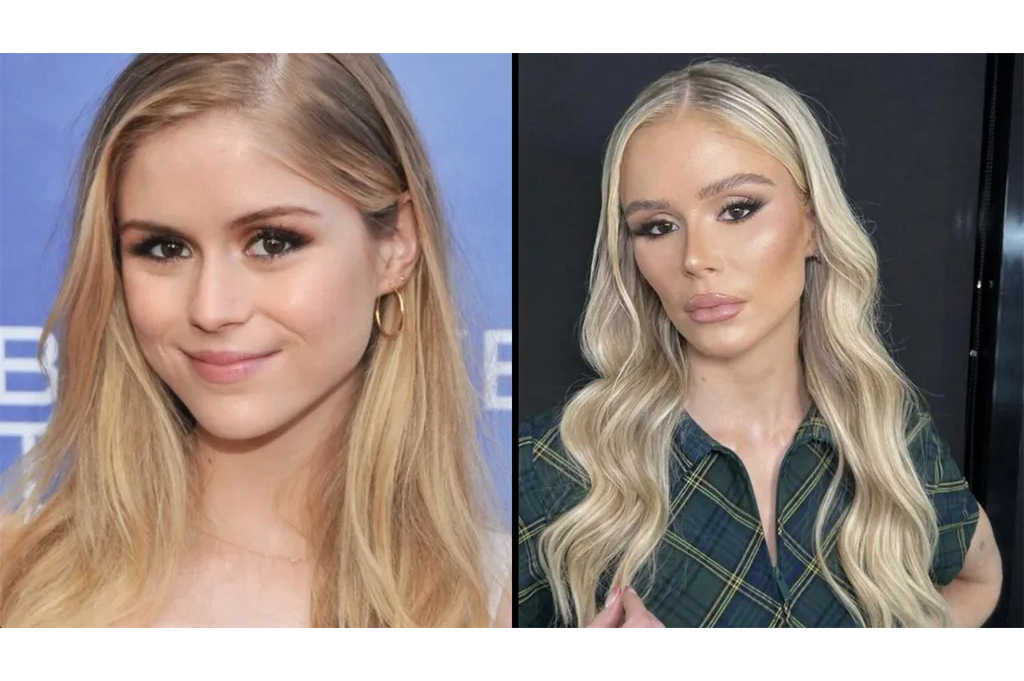Botoxing Beauty

Practical problems require darker powers.
The British writer G.K. Chesterton made that observation a hundred years ago, noting that people have always a "secret and perverse feeling that the darker powers would really do things."
A corollary idea came with that feeling: the darker powers require something ugly or unworthy to obtain their assistance. They require us to do a "monkey trick."
We today have an intensely practical problem: we're not immortal.
We're turning to the ugly to deal with it.
Pretty Celebrities are Ruining Their Faces
Our culture fears death so much, we'd rather look like ghouls than accept aging.
The pretty Erin Moriarty destroyed her looks with surgery, and she's only 29.

It seems like all female (and many male) celebrities are using Botox and other monkey tricks so they don't look like they're aging.
After all, they're celebrities. They mustn't look like they're getting closer to the thing that their fans dread most: death.
They'd rather look ugly than look older, even if "older" only means 40 . . . or 30.
If a fan feels a twinge of mortality when looking at her, the fan might fall away.
So celebrities turn to Botox and fillers.
The Rest of Society is Abandoning the Beautiful
These monkey tricks are now spreading to the rest of our culture, says the Spectator's Amber Duke.
It makes sense.
We see these unnatural and non-aging faces plastered all over our media, so we want to look like them.
No matter that they're ugly.
No matter that they make a face less natural and therefore intuitively less appealing to the person in front of you.
No matter that Botox limits the use of facial muscles, which can impair a mother's interaction with her baby.
“(Botox) likely does limit and distort parent-infant communication, possibly making the parent look ‘flat’ emotionally,” Dr. Ed Tronick, associate professor of pediatrics and psychiatry at the University of Massachusetts, told CNN over a decade ago. “Facial expressions for parents and young children are really critical ways in which we communicate our intentions or whether we’re angry or sad, and that involves this very complex array of all the muscles that go into making facial expressions. So if you limit that range of expression, especially with very young children who are really attuned to reading facial expressions, then you limit the amount of information, the amount of emotion that you communicate using a facial expression.”
And now even girls in their early teens are obsessing about not aging.
Makeup retailers are "swarmed with girls under the age of thirteen looking for expensive makeup and skincare products that are created with adults in mind." The products--Retinol, Vitamin C, exfoliates--are simply too harsh for such young skin, but parents are "giving in to their little girls rather than steering them toward more developmentally appropriate hobbies."
If We Neglect Truth, Goodness, or Beauty, the Other Two Suffer
The theologian Hans Urs von Balthasar worked hard to revive our culture's appreciation for beauty.
Beauty, he noted, had long been neglected by our Western culture, in favor of her transcendental sisters, goodness and truth.
The problem with such neglect, Balthasar explored, is that, if beauty is ignored, goodness and truth suffer. All three need to be healthy and vibrant.
As our culture has increasingly shut out the truth of death, as well as the goodness of a full existence that can only be found on the other side of the Door, we have lost our appreciation for beauty.
It started at the top, taking down our prettiest people.
Now it is ravaging the rest of a society that fears death and is willing to resort to the monkey trick of Botox instead of facing it.

